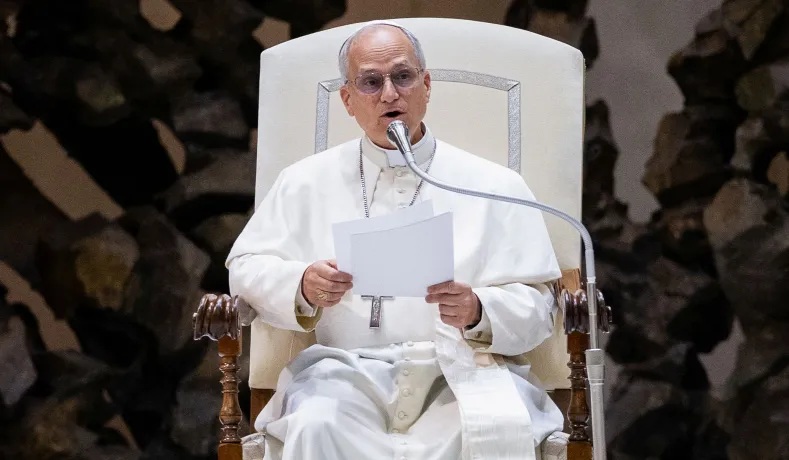Pope Leo XIV on Thursday, June 26, 2027, issued a forceful rebuke of what he calls a disturbing global trend: the abandonment of international law in favor of raw power.
In a statement posted on social media Thursday, the pontiff condemned the weakening of legal and humanitarian norms as armed conflicts, civilian suffering, and defiance of international rulings continue to dominate headlines around the world.
“It is disheartening to see today that the strength of international law and humanitarian law no longer seems binding, replaced by the presumed right to overpower others,” the pope wrote.
“This is unworthy and shameful for humanity and for the leaders of nations.”
While Pope Leo did not mention any specific countries in his message, his words arrive at a time of growing international outrage over alleged war crimes and human rights violations.
This is particularly in Gaza, where the Israeli military campaign has drawn severe criticism.
Rights groups, UN officials, and legal scholars have increasingly characterized Israel’s ongoing assault on Gaza as genocide.
Supported militarily and diplomatically by the United States, Israel has:
- devastated vast areas of the territory,
- displaced almost its entire population, and, according to Palestinian health officials, killed at least 56,156 people since October 2023.
Earlier this month, a stunning admission from a former senior U.S. official added to the controversy.
Matthew Miller publicly acknowledged that Israel has “without a doubt” committed war crimes during its operations in Gaza.
Miller is the Biden administration’s former spokesperson for the U.S. Department of State.
These actions are in direct violation of international humanitarian law, the legal framework designed to protect civilians in times of war.
International courts have issued multiple rulings condemning Israel’s actions.
These include the International Court of Justice (ICJ), which last year deemed Israel’s occupation of Palestinian territories, including East Jerusalem, the West Bank, and Gaza, unlawful.
More recently, the International Criminal Court (ICC) took the unprecedented step of issuing arrest warrant for Israeli Prime Minister Benjamin Netanyahu.
It also issued arrest warrant for former Defense Minister Yoav Gallant.
The charges include the use of starvation as a weapon of war — a serious violation of the laws of armed conflict.
Despite these rulings, many ICC member states, particularly in Europe, have continued to maintain close economic and military ties with Israel.
This gap between legal obligations and political practice underscores the very concern Pope Leo raised: that international law is increasingly treated as optional, rather than binding.
Pope Leo XIV, who became the first American pope following the death of Pope Francis in May, has emerged as a moral voice for peace in his short time as leader of the Catholic Church.
In one of his earliest public appeals, he called for an immediate end to the war in Gaza.
“Ceasefire now,” he urged in May.
“From the Gaza Strip, we hear rising ever more insistently to the heavens, the cries of mothers and fathers who clutch the lifeless bodies of their children, and who are continually forced to move about in search of a little food and water and safer shelter from bombardments.”
The pope’s message resonated across a global Catholic community of 1.4 billion people and beyond.
His call for a ceasefire was echoed by humanitarian organizations and faith leaders around the world.
But Gaza is only one of several active war zones where legal norms appear to be crumbling.
In Sudan, a brutal civil conflict has displaced millions, with both sides accused of ethnic killings, rape, and starvation tactics.
In Ukraine, Russian forces continue a grinding war with numerous documented attacks on civilians, despite repeated international condemnation.
Against this backdrop, Pope Leo’s warning takes on urgent significance.
His statement reflects growing anxiety among global leaders, diplomats, and human rights advocates who fear that a world without enforceable rules risks descending into unchecked violence and impunity.
In a world where might increasingly overrides right, the pope’s voice stands as a reminder that global peace and justice depend not just on power, but on principle.







